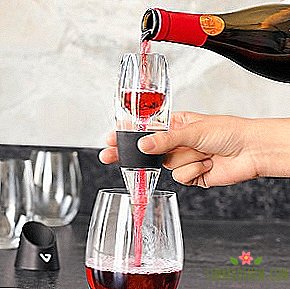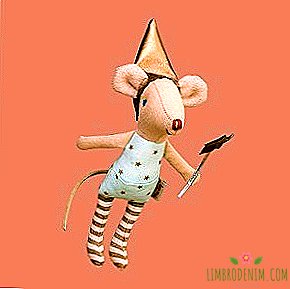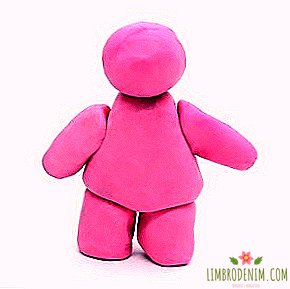How to learn to relax and not reproach yourself for idleness
Text: Anastasia Rubtsova
Once my husband and I flew, it seems, to Istanbul. Or in Kaliningrad. At the airport, we talked to a woman who, very strictly, with teacher intonation, listed the main sights of the city to us. And she added impressively: "How many have you flown in? For two days in total? Well, well. You'll have to work hard."
This “hard work” later became our family meme, meaning something that contradicts the very idea of rest. Because we were not going to chase the sights. We didn’t want to squeeze out the essence of "good" from a strange city for two days, fill a bag with souvenirs or go round all the places indicated in the guidebooks. We just wanted to walk, laugh, eat, sleep, stare at the sides. Breathe. Draw our own map of this city, which may include a bridge under drizzling rain, a funny waiter in a coffee shop, a rusty iron smell in the port, and maybe a ladybug crawling along the wall of the cathedral. Who knows.
I often remember this "work hard." Usually, when I hear stories of friends, clients and colleagues about how they used the long-awaited two-week vacation, to go to the training and "tighten the language." Or I listen to a vigorous report on the journey (they rented a car, drove around the whole island, went around all the cathedrals, and in the evening managed to go to the opera, dive every day with an aqualung, sorry, they did not get into the Uffizi gallery, but tickets had to be ordered via the Internet for half a year!). He almost always ends with the words: "Well rested, only I was exhausted like a dog." And the dog is not accidental here.
Any of our trip, any trip - stress for the body. Small (and for someone rather big) test for the psyche. Suppose your head wants to go to Paris, to the Eiffel Tower and to Notre Dame Cathedral. For the head, the words "Paris" and "cathedral" mean a lot: French Gothic, romance, aesthetics and prestige. For the body, they do not mean anything. The body reacts to many stimuli in the same way as it would react a hundred, one thousand, and two thousand years ago. You can imagine him - very conditionally, of course - like a dog with a blindfold. For a dog a flight is a shock. And such seemingly trifles as climate change, temperature and humidity of the air, new sounds and smells are a reason to be wary, to bristle and inspect for a long time an unknown area for a threat to life. On any trip, our "inner dog" is on the alert, and the level of anxiety increases several times. This means that a cocktail of adrenaline, cortisol and other stress hormones is splashed into the blood. By the way, this is why, on a new, unfamiliar place or on a trip, as a rule, sleep is not very good, especially when traveling alone. And the memories of travel remain so vivid, they do not fade in the memory due to the high level of stress hormones in the blood.

It is sometimes difficult to give yourself the right to relax, not to be "useful" and "effective."
Someone on the scale of excitement mark jumps up to joyful excitement, his "inner dog" is full of strength, does not wait for dirty tricks and joyfully jumps on the grass or on an unfamiliar pavement. And for someone, the alarm goes to the level of panic - what a pleasure it is. And the first, second, of course, do not understand, accused of laziness, lack of curiosity or oversteped conservatism. Although the features of our individual reaction are very strongly tied to the constitution and physiology, as, indeed, to life experience.
However, often the flip side of a high level of anxiety is just the idea of "efficiency", the idea that you need to get the most out of every minute, every day, otherwise we will be caught up with terrible shame and a sense of worthlessness. In order to protect ourselves from these feelings, we draw up a tense cultural program - so that it is not possible to sit down in the morning at the Louvre, during the day at the flea market, and in the evening at the organ hall, and between all of this still teach higher mathematics. And in addition we are loading the psyche, which needs exactly the opposite.
The nervous system requires rest. This, by the way, explains the desire to return again and again to a familiar, well-studied place, which for some reason is considered to be a bit funny and a little shameful. Although recognition is pleasant, and the return is soothing. The body does not spend time and energy on testing the environment (“dangerous” - “safe”) and immediately plunges into blissful idleness.
Sometimes it is very difficult to give yourself the right to relax, not to be "useful" and "effective." This applies to rest both on vacation and on weekends, on weekday evenings and even at lunchtime. Rest does not correlate with any "necessary" and generally with benefit. This is pure "want", this is a game and doing nothing. The mantra "there is no word" I want, "there is the word" must "" leaked into our everyday language everywhere: it is repeated by men and women, old and young, even today's schoolchildren. The viciousness of this formula is not in the fact that there is a word “necessary” - this is a fact, there are quite a lot of things in life that have to be done, they are useful and necessary, although sometimes it’s boring. The trouble is that there is no word "I want." In this formula, any desires turn out to be not completely legal, and “it is necessary” turns into an instrument of coercion and violence against oneself. It is necessary to read ten books ("for self-education" or "for work"). We must go through intensively. We must go on five excursions in two weeks ("do not lie on the beach as a vegetable"). All this is not a rest, but a more or less clever substitution of one "must" by another.

Rest is needed when we are tired, and travel - when we are full of energy and we are eager for new
In the modern world, our working tools are the head and our own psyche. Simple common sense suggests that tools need periods of rest. The brain and its creative abilities are restored only in peace and idleness. Even fitness trainers love to tell that muscles grow in a period of rest, and not in the period of maximum load. With the psyche, everything is the same. I would not mix rest and travel at all. Rest is needed when we are tired, and travel — when we are curious, we are full of strength and long for new things.
Another underestimated factor, colossally important for recreation, is silence. Our brain routinely filters out noises around us when we are awake and asleep, and we rarely manage to notice how many there are. We can guess this only in contrast, when suddenly in the silence and wilderness we manage to magically sleep, as never happens in the city.
Therefore, every time we plan a vacation (whether it is a three-week vacation in a foreign country or an afternoon walk in the park), it makes sense to recall our “inner dog”. What is rest for her? Surely a good place to sleep (not an old matted mattress, not an uncomfortable folding sofa), comfortable clothes and shoes. Maybe more movement, and maybe more silence. Maybe new people, or no people at all. In any case, you should not try to arrange a meeting schedule for yourself, like that of the British Prime Minister, and meet all friends and relatives who have not been seen for half a year. Rest is the time to draw your own map, rebuild what is depleted, and reconfigure what is upset. And it's not always worth using it to plant seven rose bushes, whitewash the walls and get to know yourself.




